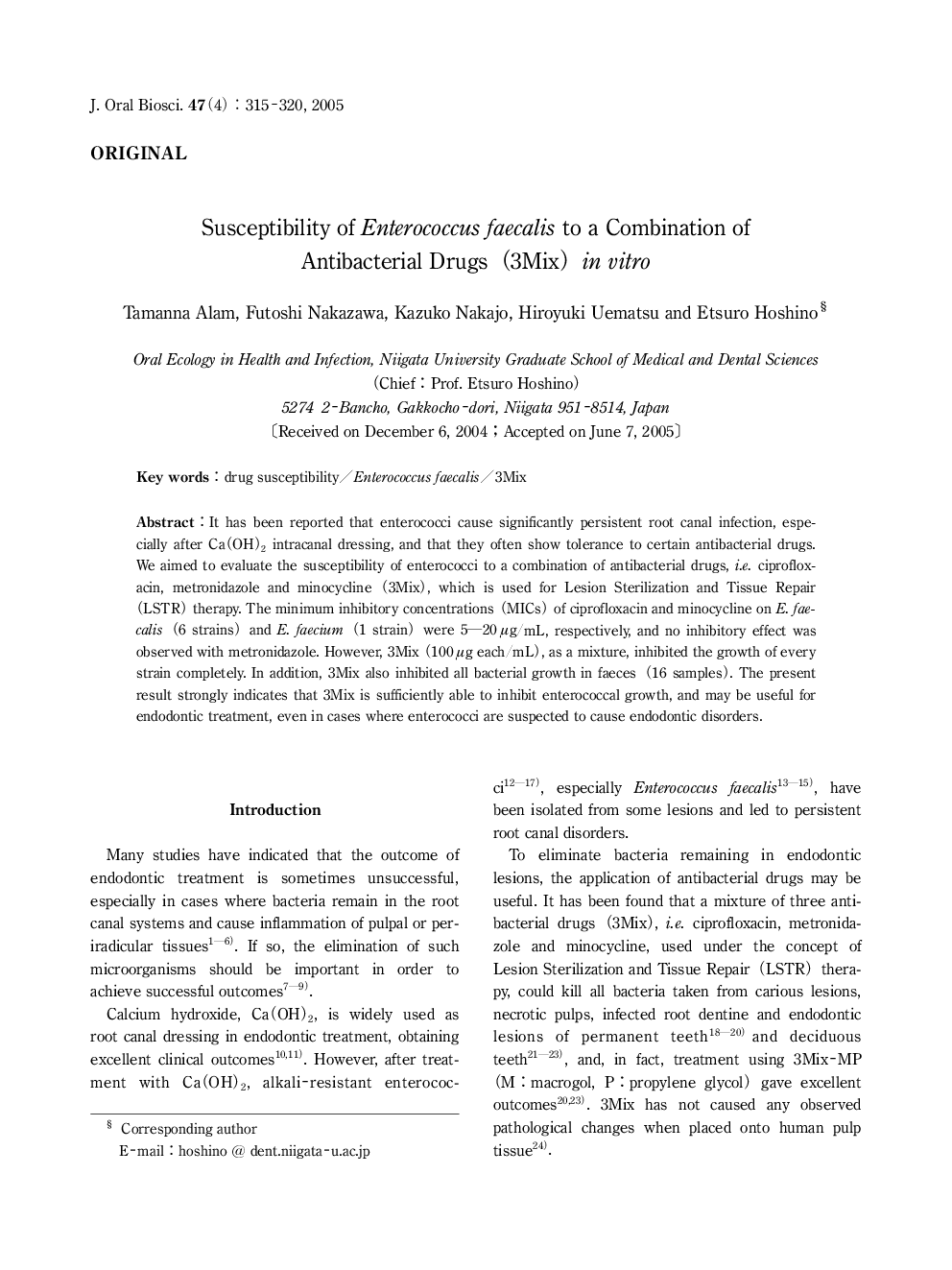| Article ID | Journal | Published Year | Pages | File Type |
|---|---|---|---|---|
| 9103363 | Journal of Oral Biosciences | 2005 | 6 Pages |
Abstract
It has been reported that enterococci cause significantly persistent root canal infection, especially after Ca(OH)2 intracanal dressing, and that they often show tolerance to certain antibacterial drugs. We aimed to evaluate the susceptibility of enterococci to a combination of antibacterial drugs, i.e. ciprofloxacin, metronidazole and minocycline (3Mix), which is used for Lesion Sterilization and Tissue Repair (LSTR) therapy. The minimum inhibitory concentrations (MICs) of ciprofloxacin and minocycline on E. faecalis (6 strains) and E. faecium (1 strain) were 5-20 μg/mL, respectively, and no inhibitory effect was observed with metronidazole. However, 3Mix (100 μg each/mL), as a mixture, inhibited the growth of every strain completely. In addition, 3Mix also inhibited all bacterial growth in faeces (16 samples). The present result strongly indicates that 3Mix is sufficiently able to inhibit enterococcal growth, and may be useful for endodontic treatment, even in cases where enterococci are suspected to cause endodontic disorders.
Related Topics
Life Sciences
Biochemistry, Genetics and Molecular Biology
Clinical Biochemistry
Authors
Tamanna Alam, Futoshi Nakazawa, Kazuko Nakajo, Hiroyuki Uematsu, Etsuro (Chief: Prof),
